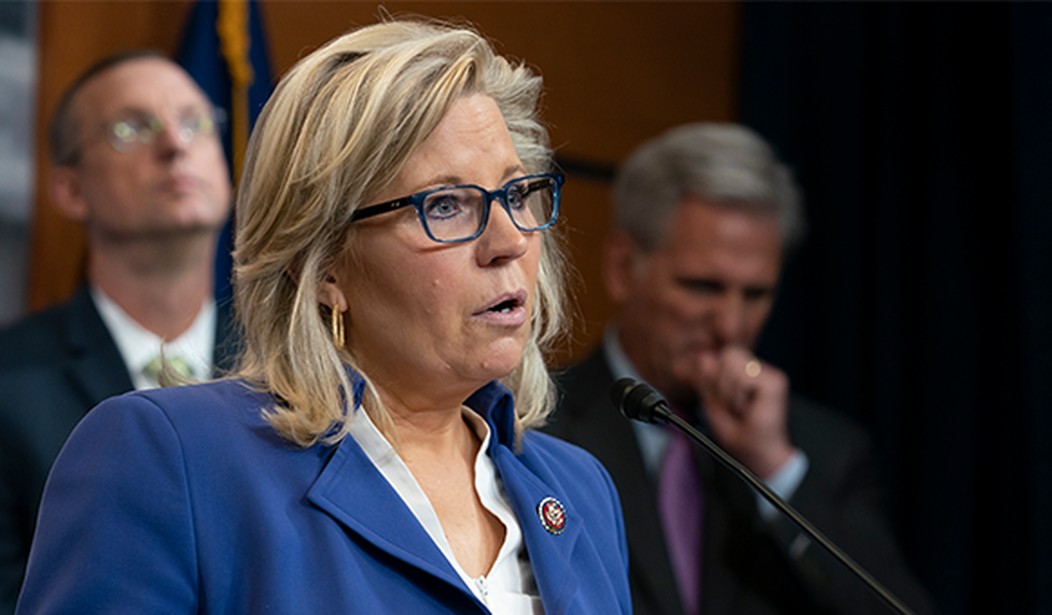Is there really a Republican civil war? Or is it just a few anti-Trump malcontents who are trying to curry favor with the mainstream media by voting to impeach the former president?
While the media may be praising those anti-Trump representatives, members of their party and probably a majority of their constituents are sharpening their knives waiting for the opportunity to cut them down to size.
It comes as no surprise to Rep. Adam Kinzinger, who fully expects to lose his seat as a result of his vote.
“I did it knowing full well it could very well be terminal to my career,” Kinzinger told host David Axelrod while speaking on “The Axe Files,” CNN reports.
“But I also knew that I couldn’t live with myself having, you know, try to just protect it and just felt like the one time I was called to do a really tough duty, I didn’t do it.”
If that sounds like a soldier going into a hopeless battle, it’s because Kinzinger is an Air Force reservist who saw action in both Iraq and Afghanistan. As a 5-term veteran of Congress, he knows the political score as well as anyone. He’s a dead man walking as far as his career in the House, although there have been whispers about him running for governor.
Those whispers have faded considerably since he became one of only 10 Republicans to vote to impeach Donald Trump. That vote has made him a very lonely man.
“I’ve felt very isolated in my party,” Kinzinger told the newspaper. “Very isolated and very lonely.”
“I think we’re going to have an epic battle in the next six months for the definition of this party,” he added, referring to the battle between Republicans who have been divided over support of the former president amid his false claims that the election was “stolen” from him by President Biden and the deadly Jan. 6 riot at the U.S. Capitol.
By all indications, that “epic battle” is over and Donald Trump has emerged victorious. The few holdouts may get the lion’s share of coverage in the media, but their numbers are pitifully small and getting smaller. For good or ill, Donald Trump is the Republican Party and will remain so as long as he is actively engaged in politics.
Kinzinger really didn’t have a lot to lose. His unorthodox views have kept him from gaining a leadership position, despite being in Congress a decade. Liz Cheney, on the other hand, has a considerable amount to lose being the 4th ranking Republican in the House and the highest-ranking elected woman in the party.
She’s a lot more troubled by her vote to impeach. She’s banking on voters changing their minds eventually and supporting her decision.
It is hard to know Liz Cheney’s real calculation. Perhaps, at one end of the spectrum, she is thinking, Standing up to Trump could cost my career, but I’d rather lose than surrender my dignity by kowtowing to him or excusing his outrages. Or maybe she’s more confident: I know my state and I know my House colleagues. Trump can’t lay a glove on me.
Whatever Liz Cheney is thinking, the reality may be closest to this. For all the hundreds of decisions a politician makes in a year, most consequential careers are defined by being right—or wrong—on a small handful of big questions. On these, the shrewd long-term position is often quite different than the short-term “safe” one. Many politicians who played it safe voting against civil rights in the 1960s spent the rest of their careers trying to rehabilitate their reputations.
Cheney may yet survive given her family name and her personal popularity. There’s also admiration from many in Wyoming for her independent stand, although probably not much outright support.
Is it political courage to take such an unpopular vote within your own party? John F. Kennedy wrote the book Profiles in Courage which explored that question.
“These, then, are some of the pressures which confront a man of conscience. He cannot ignore the pressure groups, his constituents, his party, the comradeship of his colleagues, the needs of his family, his own pride in office, the necessity for compromise and the importance of remaining in office. He must judge for himself which path to choose, which step will most help or hinder the ideas to which he is committed. He realizes that once he begins to weigh each issue in terms of his chance for re-election, once he begins to compromise away his principles on one issue after another for fear that to do otherwise would halt his career and prevent future fights for principle, then he has lost the very freedom of conscience which justifies his continuance in office. But to decide at which and on which issue he will risk his career is a difficult and soul-searching decision.”
Cheney and Kinzinger may be viewed as traitors or worse by partisans. But they are, after all, human beings faced with a vote of conscience. That they voted in a way that most disagreed with shouldn’t obscure the real courage it took to go against the grain and probably sacrifice their careers for what they considered was right.










Join the conversation as a VIP Member